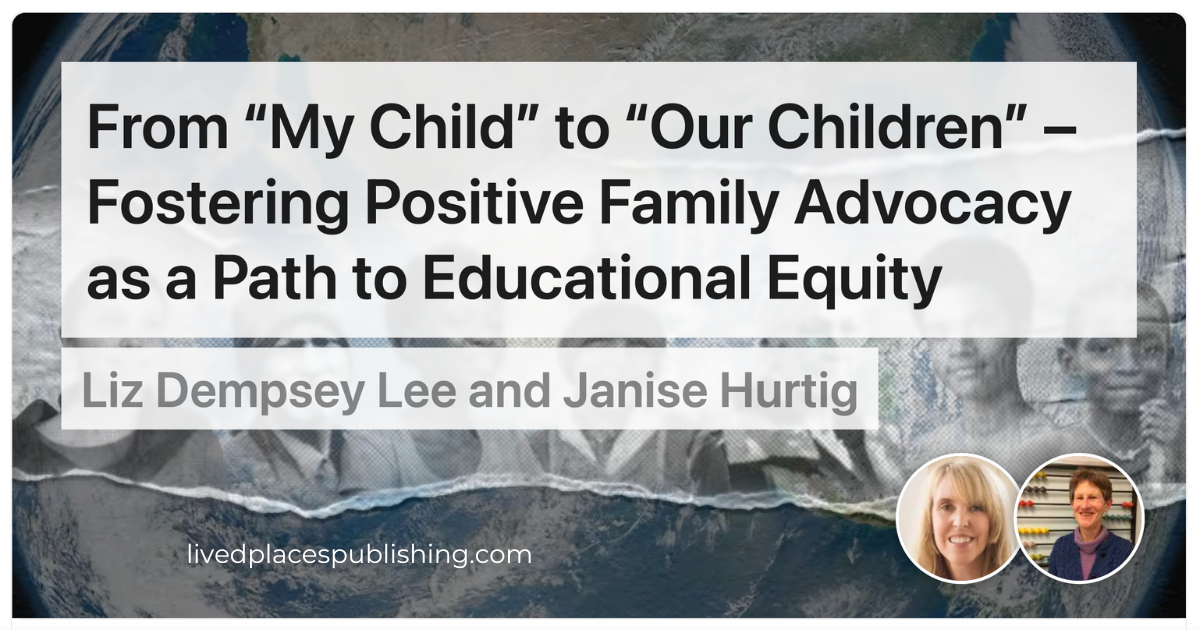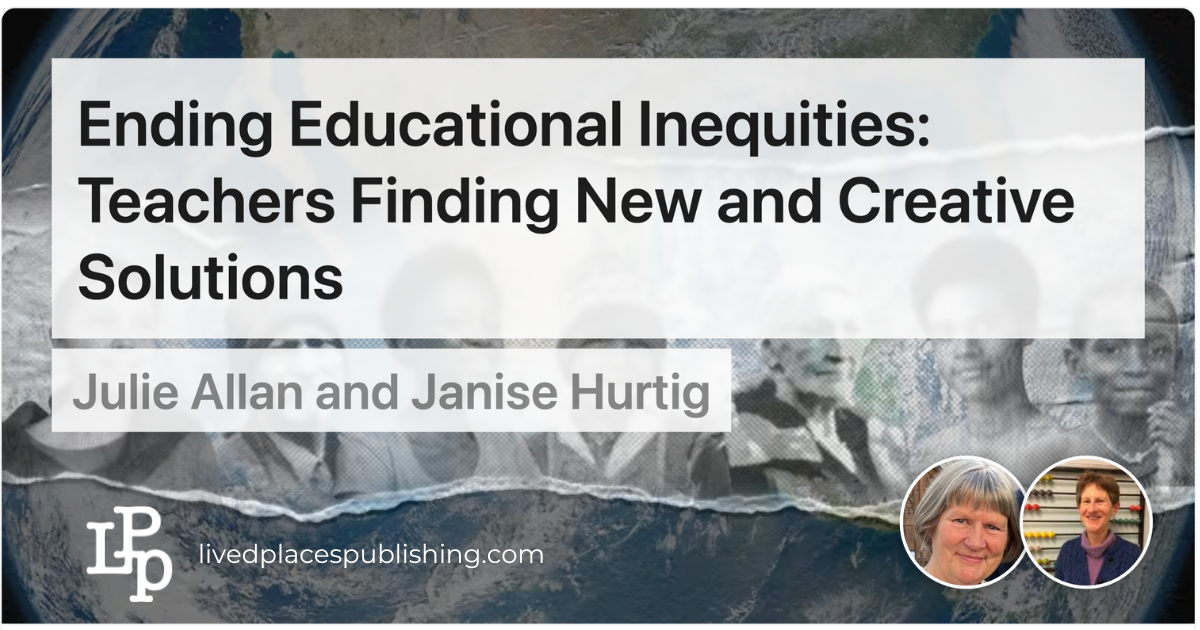From “My Child” to “Our Children” – Fostering Positive Family Advocacy as a Path to Educational Equity
A conversation between Liz Dempsey Lee, author of Parents as Advocates: Supporting K-12 Students and their Families Across Identities and Janise Hurtig, Lived Places Publishing Collection Editor. Liz and Janise discuss how recognizing and addressing family advocacy is critical to creating educational equity. They also explore how conflict is a normal and expected byproduct of the family-school relationship and how demystifying and educating families around effective advocacy can build relationships and move educational communities from a focus on “my child” to a focus on “our children.”
Ending Educational Inequities: Teachers Finding New and Creative Solutions
The pandemic reinforced and exacerbated many of the inequalities in education, yet Dr. Julie Allan uncovered many instances of teachers finding creative solutions to educational inequities and new ways to engage students in learning.
Topic Areas
- Disability Studies
- Announcements
- Fashion and Personal Style Studies
- Forced Migration
- Carceral Studies
- Asian Studies
- Cultural Anthropology
- Emergent Entrepreneurship
- Queer and LGBT+ Studies
- Latinx Studies
- Education Studies
- Black Studies
- Author Posts
- Perspectives
- Interviews
- Publishing Process
- Publishing Mission
- Seminars
- Press Releases
- Meet the Team
Recent Posts
Lived Places Publishing Announces the Launch of Intersections: Identity and Place
Faculty are increasingly asking campus libraries to provide materials from a broader, more diverse range of authors and subject areas. LPP exists to support librarians and faculty in this goal with a new Collection of 105 ebooks designed as course readings called Intersections: Identity & Place.
Lived Places Publishing at the 2024 Charleston Conference
David Parker will be presenting at The Charleston Library Conference in Charleston, SC on a panel of three publishers (non-profit and commercial) about how to use data & analytics to advance more equitable and inclusive publishing models.
Healthy Creative Outlets for Anger, Anxiety, and Frustration
by Anne Cecil
The power of creative expression is a tool for young people to process and reflect on their realities. Whether through art, writing, or music, fostering these outlets can empower them to confront complex issues and find their voice amid the noise.
How to Inspire and Sustain Creative Resistance
by Cindy Horst
How do we remain hopeful to maintain ‘the energy to act’ when confronted with a daily onslaught of visual evidence of the worst in mankind? This requires a shift from an individual to a relational ethics that strengthens our response-ability.
Why Female Entrepreneurs Get Significantly Less Startup Funding than Men
While women own more than 40% of all businesses in the US, female founders receive significantly less in funding. There are steps we can take to close this funding gap for women in business.
The Forgotten in Care Homes: Older People with Dual Sensory Impairment
Older people who live with combined hearing and vision loss (also called dual sensory impairment) are not being recognised, diagnosed and supported due to low levels of awareness among community and staff. A donate-a-book program to a care home is one innovative way to get information into care facilities.






